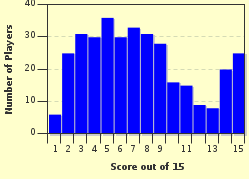Quiz Answer Key and Fun Facts
1. Which of the following is the politest way to say "I"?
2. Which of the following is the politest way to say "you"?
3. Which of the following honorifics are you least likely to hear used?
4. What is the most common way for a Japanese woman to address her husband?
5. When posting a letter, and writing the recipient's name on the envelope, which honorific would you use with their name?
6. How do the Japanese refer to the current emperor of Japan, called in English Emperor Akihito?
7. How would a junior member of a yakuza organization address one of his seniors?
8. How would Japanese children address their grandmother?
9. Tanaka Keisuke is a member of the school band. Uchida Tar˘ is an older member of the club. How does the younger member address the older?
10. Now, how does the older member most likely address the younger?
11. What aggressive way of addressing another person - the way, for example, a samurai might address another samurai whom he is about to fight - translates roughly as "precious sir"?
12. To whom would a samurai be referring if he used the word "sessha"?
13. Which of the following ranks is highest in the hierarchy of a company?
14. Which of the following people is least likely to be addressed as "sensei"?
15. And finally, which of the following does NOT mean "you idiot!"
Source: Author
Finduskeepus
This quiz was reviewed by FunTrivia editor
Bruyere before going online.
Any errors found in FunTrivia content are routinely corrected through our feedback system.

